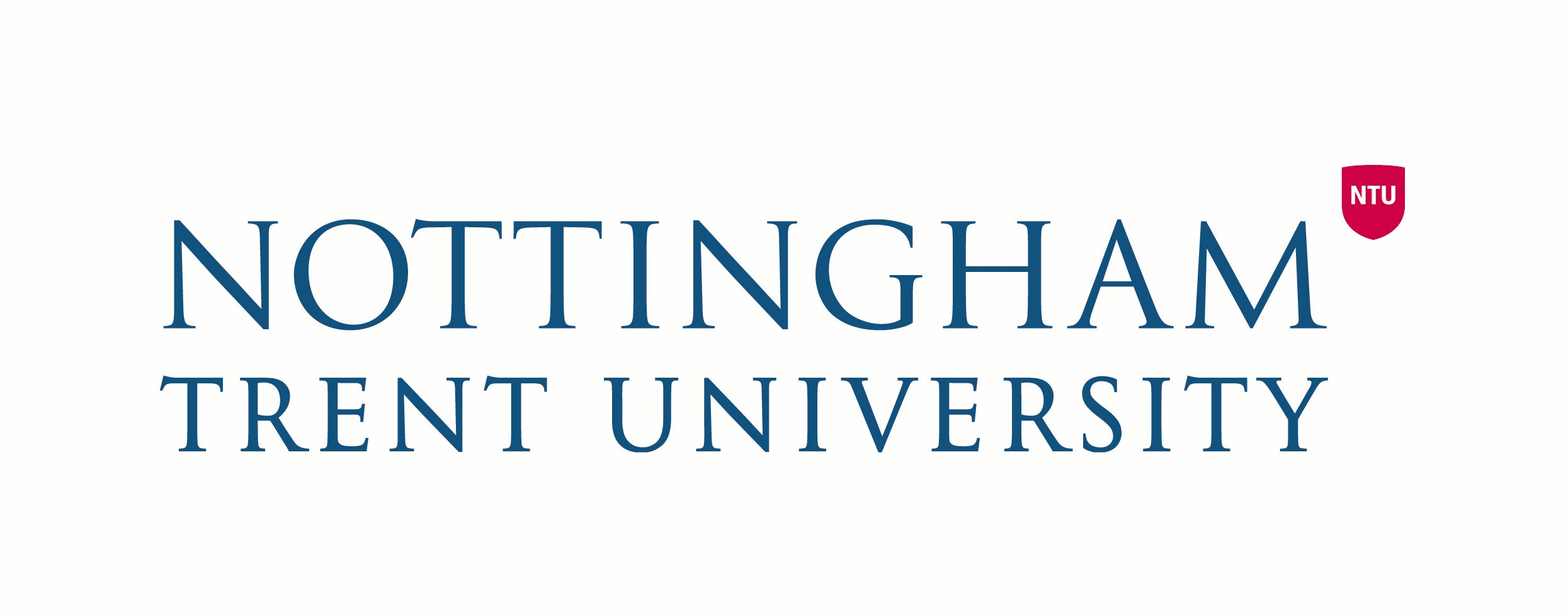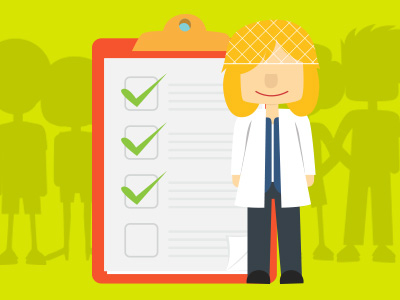
Course Summary
This course has been designed to meet the needs of the food and drink industry by providing high-level training. You'll be taught in our fantastic facilities, including a specialist food processing laboratory, and you'll have the opportunity to develop your scientific and technical skills.This course has been designed to meet the needs of the food and drink industry by providing high-level training. You'll be taught in our fantastic facilities, including a specialist food processing laboratory, and you'll have the opportunity to develop your scientific and technical skills.
Why choose this course?
In such a fast moving industry there are excellent opportunities for career progression in this sector while at the same time there is also a real need for employees to be trained to degree level.
- You will study a range of disciplines in food science and technology, including biochemistry, product development and manufacturing processes and technologies.
- This course is accredited by the Institute of Food Science and Technology and endorsed by the National Skills Academy for Food and Drink
- You'll undertake practical work in our food processing, chemistry and microbiology laboratories.
What you'll study
This course looks at the chemistry, biochemistry and physics that underpin food manufacturing. You'll also study nutrition and the physiology of the human diet. Your learning will incorporate food production methods, product development, and food regulation.
Year 1
Food Chemistry
Study aspects of chemistry that are of particular relevance to food production. Carry out laboratory analysis of foodstuffs and learn the principles of data analysis.
Food Safety
Gain the knowledge and skills necessary to implement safe practices in the production of food. This module covers the professionally recognised level 4 food safety syllabus.
Principles of Product Development
Assess the market and identify the need for a new product across different sectors of the food industry. You'll also learn about analysing the costs and technical feasibility of developing a new product.
Food Raw Materials
Understand the different attributes of a range of food raw materials and evaluate how agricultural practices affect their quality. The module also covers raw material supply chain management procedures, and how primary production is manipulated to modify characteristics of raw materials.
Food Product Manufacture
Learn how to combine theory with practical application. You'll use the pilot plant equipment in the food processing hall to undertake a range of food processing operations and apply principles of safety, hygiene and quality to food production.
Quality Assurance
Examine concepts, methodologies and techniques of food quality assurance, including hazard analysis and critical control points (HACCP). Carry out shelf-life assessments and apply quality assurance techniques to food products.
Year 2
Food Technology
Gain a sound understanding of processing operations used in the food industry, including mixing and emulsifying, filtration, heat-processing methods, and dehydration.
Microbiology of Food Processing
Develop knowledge and understanding of microbial food spoilage and toxin production. Undertake laboratory work, learning and applying a variety of techniques for the microbiological assessment of food.
Sustainable Food Production
Discuss the challenges, problems and benefits related to the sustainability of food production and food supply chains. You'll also identify and evaluate methods by which the environmental impact of the food industry can be minimised.
Food Industry Employability
This module will help you to develop the soft skills demanded in the work environment. You will build a portfolio of evidence and a professional social media profile for the purpose of raising your employability profile.
Consumer Nutrition and Health
Understand human nutrition and develop an ability to analyse foods for macronutrients associated with nutrition and allergens. You'll also investigate how consumer nutritional needs affect product development.
Experimental Design and Analysis
Cultivate an understanding of research methodology, hypothesis testing, statistical analysis, and data presentation.
Year 3
This is a placement year for students on the four-year course.
Final year
Food Biochemistry
Study the biochemical aspects of food processing, both beneficial (e.g. fermentation processes) and detrimental (e.g. food spoilage). Genetically modified (GM) crops and microbes will also be explored.
Food Industry Management
Develop and promote your management skills. You'll focus on management issues within the food industry, including understanding the integrated nature of the supply chain and the commercial and political environment in which the industry operates.
Product Innovation
Working in a team, you'll address all the stages involved in the development of a new food product, from concept to retail. You'll develop your own understanding of the constraints within which new food product development takes place.
Advances in Food Processing and Technology
You will examine a range of food processing technologies including membrane processes, extraction, and robotics. You'll also study the biophysical principles underpinning their impact on food production, quality and safety.
Dissertation
Carry out independent research under supervision. Focus on your own area of interest within the food industry.
Course specification
View the full course specification
Please note that course specifications may be subject to change.
How will I learn?
You'll experience a range of learning and teaching methods. As well as traditional lectures and tutorials, you'll undertake practical work in our food processing, chemistry and microbiology laboratories. Visits to commercial businesses are also arranged.
Assessment methods
- Year 1 coursework (82%), written (9%) and practical (9%).
- Year 2 coursework (67%), written (33%) and practical (0%).
- Year 3 coursework (80%), written (20%) and practical (0%).
Contact hours
A full-time student on average can expect to spend 1200 hours a year learning which will typically be broken down as follows:
- Year 1 lectures/seminars/workshops (28%), independent study (72%) and placements (0%).
- Year 2 lectures/seminars/workshops (27%), independent study (73%) and placements (0%).
- Year 3 lectures/seminars/workshops (20%), independent study (80%) and placements (0%).
A placement year may be taken between year 2 and year 3 of study.
Careers and employability
This degree will equip you for a career within the food and drink sector. You could find employment in a range of quality assurance, technical, production, and new product development roles.
This course will also provide you with the transferable skills necessary for self-management.
UK Entry Requirments
What are we looking for?
- A-levels – BCC including a Science subject; or
- BTEC Extended Diploma – DMM, including relevant Science modules; or
- 104 UCAS Tariff points from three A-levels or equivalent qualifications, including an A-level equivalent in a Science subject; and
- GCSEs - English and Maths grade C / 4.
For this course we accept the following Science subjects: Biology, Chemistry, Physics, Human Biology, Environmental Studies, Sports Science and Design and Technology: Food Technology.
Applicants without A-levels will have their applications assessed for subject compatibility.
We also consider equivalent qualifications and combinations.
If you are unsure whether the qualifications you have, or are currently studying for, meet the minimum entry requirements for this course, please contact us before submitting an application through UCAS.
The UCAS Tariff
We've created a UCAS Tariff calculator to help you work out how many UCAS points your qualifications relate to.
Getting in touch
If you need any more help or information, please email our Admissions Team or call on +44 (0)115 848 4200.
International Entry Requirements
What are we looking for?
We accept qualifications from schools, colleges and universities all over the world for entry onto our courses. If you’re not sure how your international qualification matches our course requirements please visit our international qualifications page.
Foundation courses
If you need to do a foundation course to meet our course requirements please visit Nottingham Trent International College (NTIC). If you’re already studying in the UK at a school or college and would like to know if we can accept your qualification please visit our foundation courses page.
English language entry requirements
If English is not your first language you need to show us that your language skills are strong enough for intensive academic study. We usually ask for an IELTS test and we accept some alternative English language tests.
- For a list of our language requirements please visit our English language page.
- If you need to do a pre-sessional English language course to meet the English requirements please visit our pre-sessional English course page.
Help and support
If you have any questions about your qualifications or about making an application to the University please email our International Team for advice
How to apply
Ready to join us? Then apply as soon as you can. Just click the Apply button at the top of the page and follow the instructions for applying. Make sure you check the entry requirements above carefully before you do.
Writing your application and personal statement
Be honest, thorough and persuasive in your application. Remember, we can only make a decision based on what you tell us. So include all of your qualifications and grades, including resits or predicted grades.
Your personal statement is a really important part of your application. It’s your chance to convince us why we should offer you a place! You’ve got 4,000 characters to impress us. Make sure you use them to show how your skills and qualities are relevant to the course(s) you’re applying for. For more hints and tips, take a look at our page on how to write a good personal statement.
Keeping up-to-date
After you’ve applied, we’ll be sending you important emails throughout the application process so check your emails regularly, including your junk mail folder.
You can get more information and advice about applying to NTU on our Your Application page. Good luck with your application!
Getting in touch
If you need any more help or information, please email our Admissions Team or call on +44 (0)115 848 4200.
Please read our notes on the University's commitment to delivering the educational services advertised.
UK Fees
Preparing for the financial side of student life is important, but there’s no need to feel anxious and confused about it. We hope that our fees and funding pages will answer all your questions.
Getting in touch
For more advice and guidance, you can contact our Student Financial Support Service.
Tel: +44 (0)115 848 2494
What do the course fees cover?
All mandatory costs for the course are covered in the course fee. In addition, most study modules will recommend one or more core textbooks, which most students choose to purchase. Book costs vary between courses and further information is available in the University’s bookshop. A good supply of these essential text books are available in the University libraries which students can easily borrow or access directly whilst studying in the library.
While we aim to keep any extra study costs to a minimum, please see our page on additional costs and optional extras to find out about any additional expenses you may incur on your course.
International Fees
Preparing for the financial side of student life is important, but there’s no need to feel anxious and confused about it. We hope that our fees and funding pages will answer all your questions.
Getting in touch
For more advice and guidance, you can contact our Student Financial Support Service.
Tel: +44 (0)115 848 2494
What do the course fees cover?
All mandatory costs for the course are covered in the course fee. In addition, most study modules will recommend one or more core textbooks, which most students choose to purchase. Book costs vary between courses and further information is available in the University’s bookshop. A good supply of these essential text books are available in the University libraries which students can easily borrow or access directly whilst studying in the library.
While we aim to keep any extra study costs to a minimum, please see our page on additional costs and optional extras to find out about any additional expenses you may incur on your course.
Brackenhurst,
Southwell,
Nottinghamshire,
England,
NG25 0QF

 cy
cy




